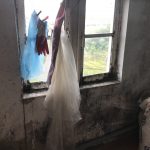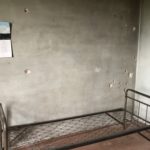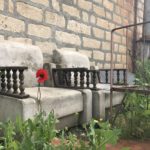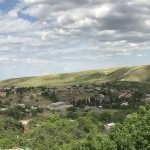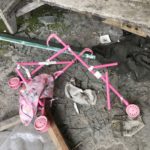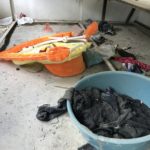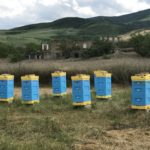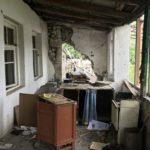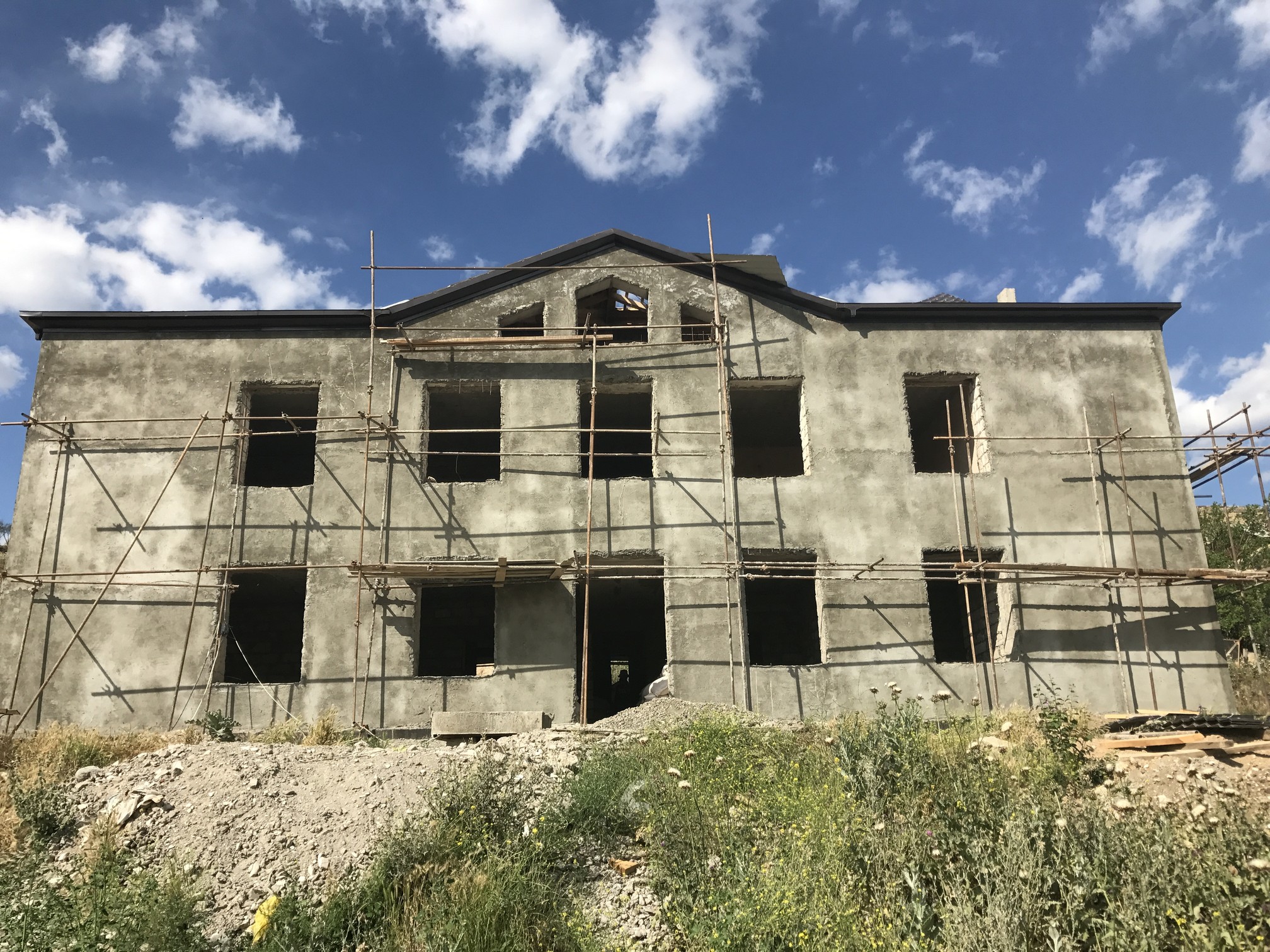
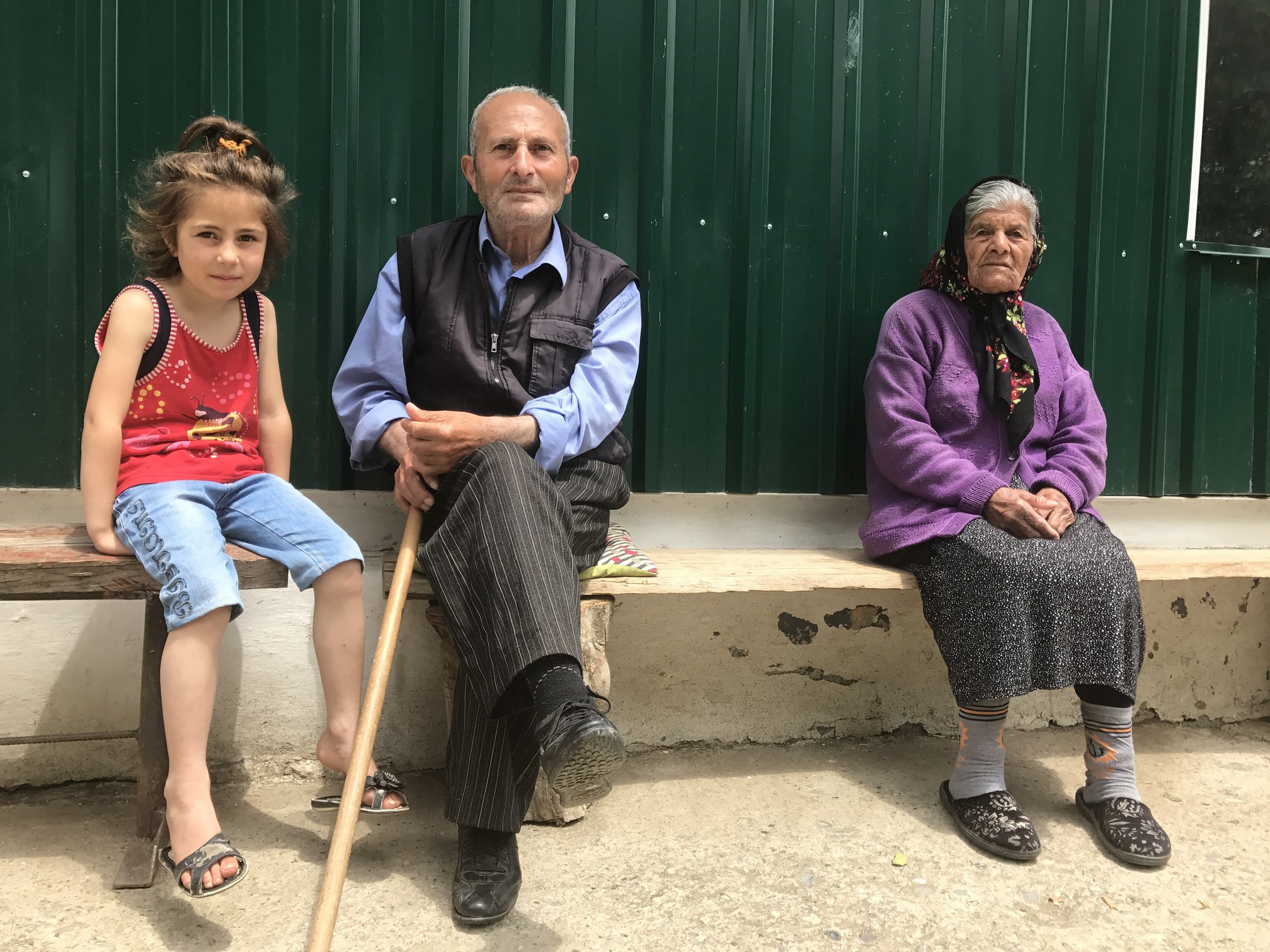

On 2 April 2016, the Four-Day War began, and Azerbaijani troops moved into the village of Talish in Nagorno-Karabakh. One year on, only a couple of dozen men remain in Talish — their wives and children waiting to return and rebuild their lives.
More than a year after the Four-Day War, the Khalapyans’ home lies empty; the surviving members of the family have left Talish. The Khalapyans’ house lies at the edge of the village, and was the first that Azerbaijani soldiers entered.
Pictures and media reports which circulated at the time showed the bodies of Marusya Khalapyan, born in 1924, together with her son Valera and his wife Razmela, lying dead in their home. Armenia was shocked by the images of their mutilated bodies, with the victims’ ears cut off.
The Khalapyans’ home one year after the war (Armine Avetisyan/OC Media)
‘The war that “lasted four days” has not ended yet’
‘Please come in, the door to the house was never closed, and today it remains open. Unfortunately it is uninhabited’, says 35-year-old Talish resident Petros Abrahamyan. Abrahamyan was among the group to identify the corpses of villagers one year ago.
The bullet holes are still fresh in the walls of the half empty house.
‘The war that “lasted four days” has not ended yet, otherwise I would not have a gun. Not a single day passes without shooting, but we have already become used to living and working under the bombs and the bangs. Now come down to the village and you will understand’, says Petros, leading the way.
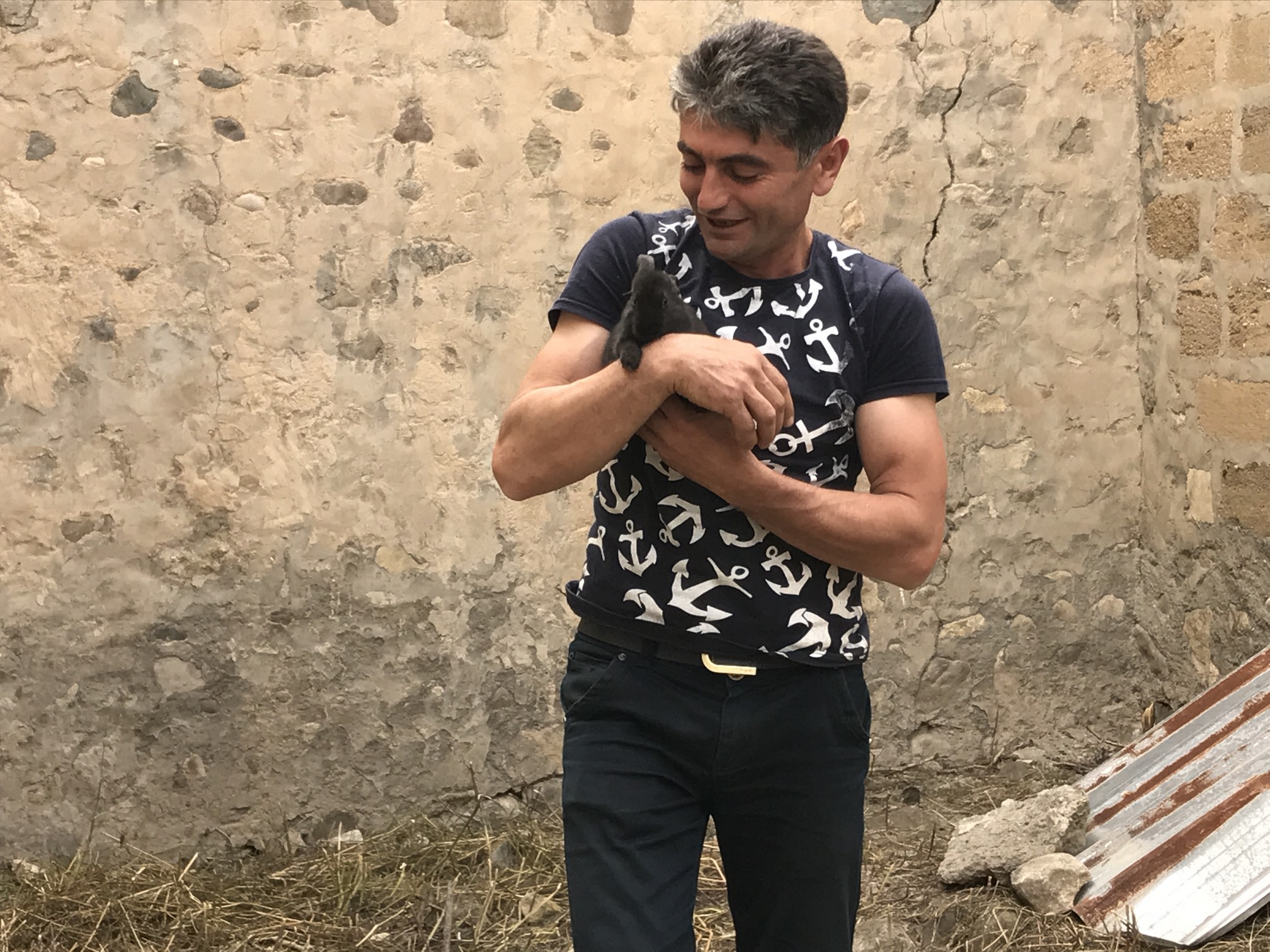
Dozens of houses and cars destroyed by the war litter the road to the village, giving the impression of entering somewhere completely dead. The sound of construction work in the distance, however, hints at something quite different.
Building a new life
‘At the moment we are building the village hall and an event hall, soon we will start building a new school and kindergarten, repairing old houses, and building more new ones’, says Vilen Petrosyan, the head of Talish.
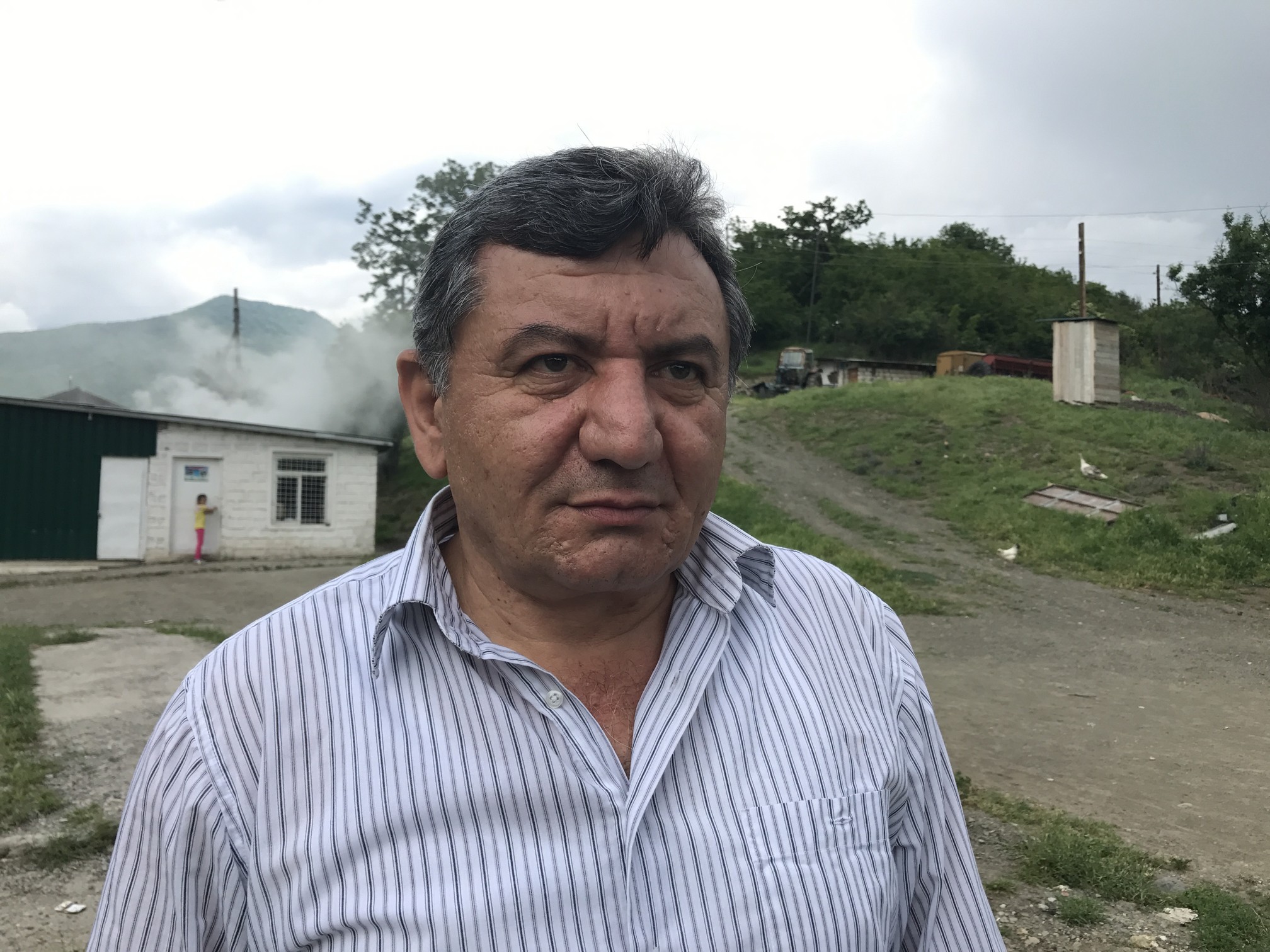
Cattle breeding is also developing in Talish; almost all of the village’s animals perished during the war. With the help of the government, residents of Talish have bought three dozen beehives, rabbits, and ducks.
‘I dream of living here with my whole family soon. I miss my wife and children, but at the moment I cannot leave the village and I cannot bring them here. I am waiting for the construction work to be completed’, says Abrahamyan.
Talish (Armine Avetisyan/OC Media)
‘It’s more cruel than war when your family is scattered. My children and grandchildren are now scattered across Armenia and Karabakh. But this is a temporary problem, as you see, our houses will be finished in a matter of months. By constructing new houses we are also moving the village [it is now a little further from the border], creating a safer environment’, points out Vasya Khachatryan, another Talish resident.
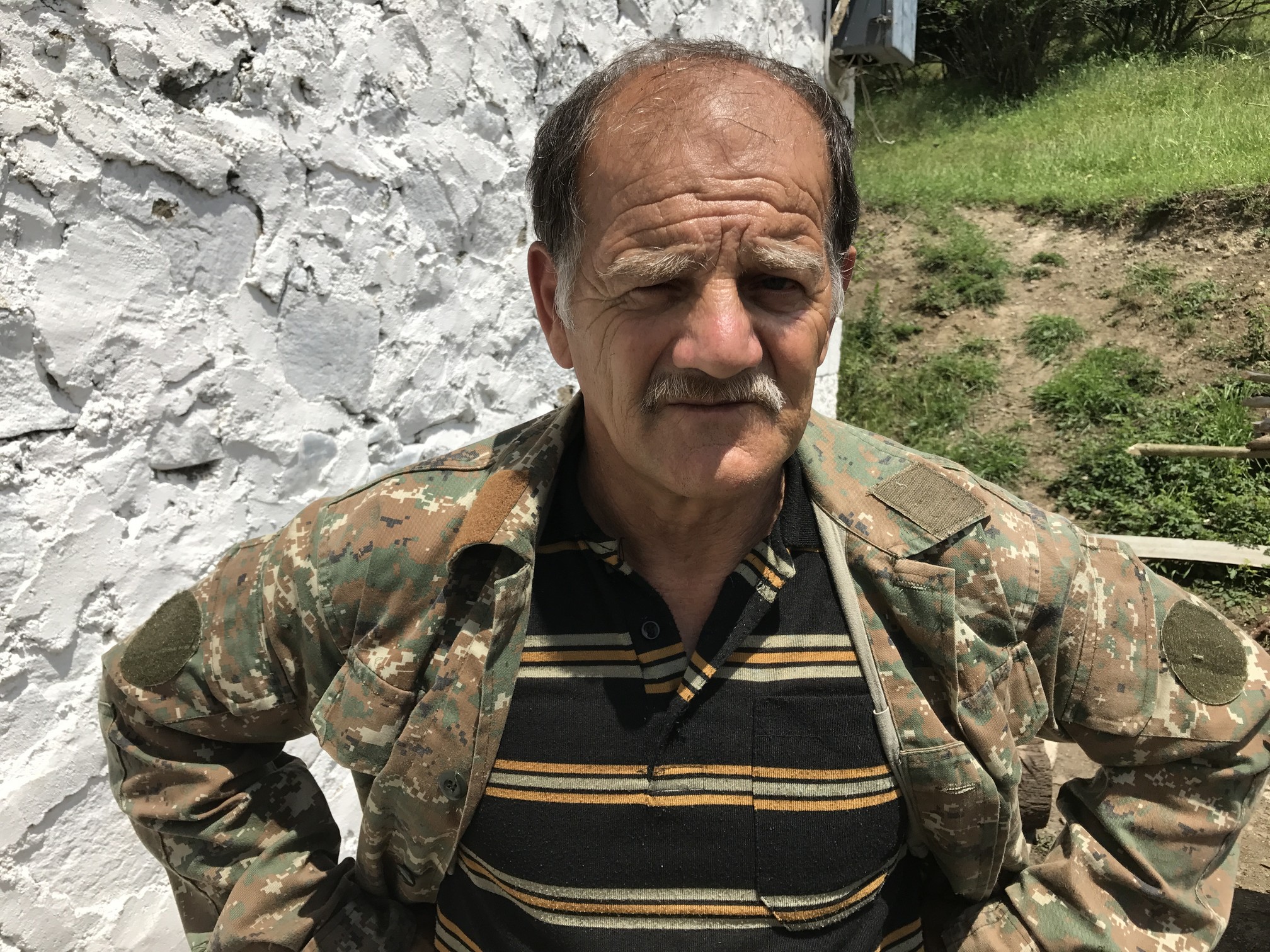
All 531 of the people living in Talish are men. Women, children, and the elderly were expelled from the village after the war began, and most of them now live in the nearby village of Alashan.
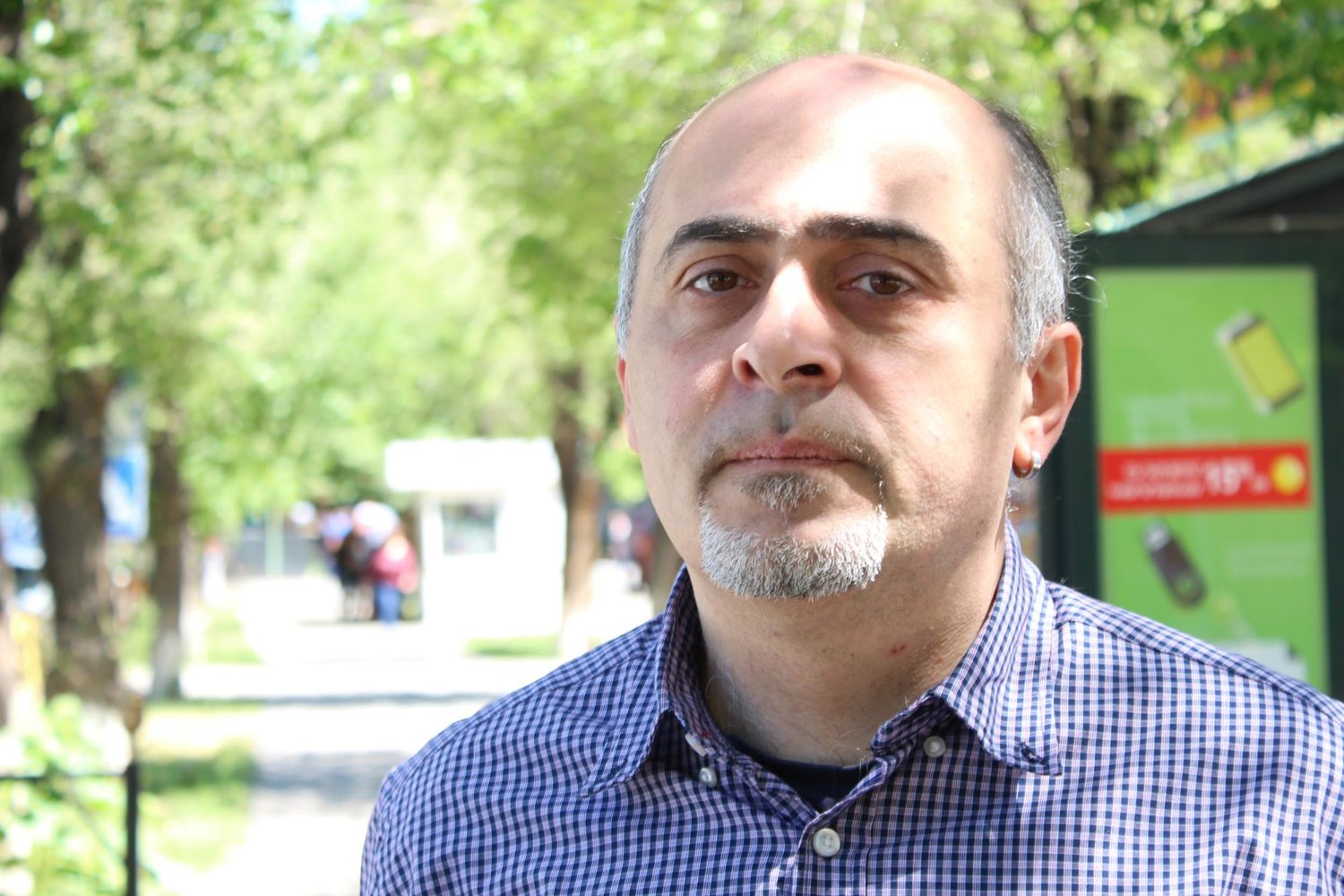
Samvel does not joke at all. ‘I wonder, when someone comes and asks me what I dream of. I wouldn’t say that I want a computer or an iPhone 7, I don’t need them — I just want peace. The gadgets will eventually break and the end of this war will not be seen’, he says.
(Armine Avetisyan/OC Media)
A dream of returning home
For a year, 28 families from Talish have had a new home in Alashan, in Nagorno-Karabakh’s Martakert Region, but they are eager to return to Talish.
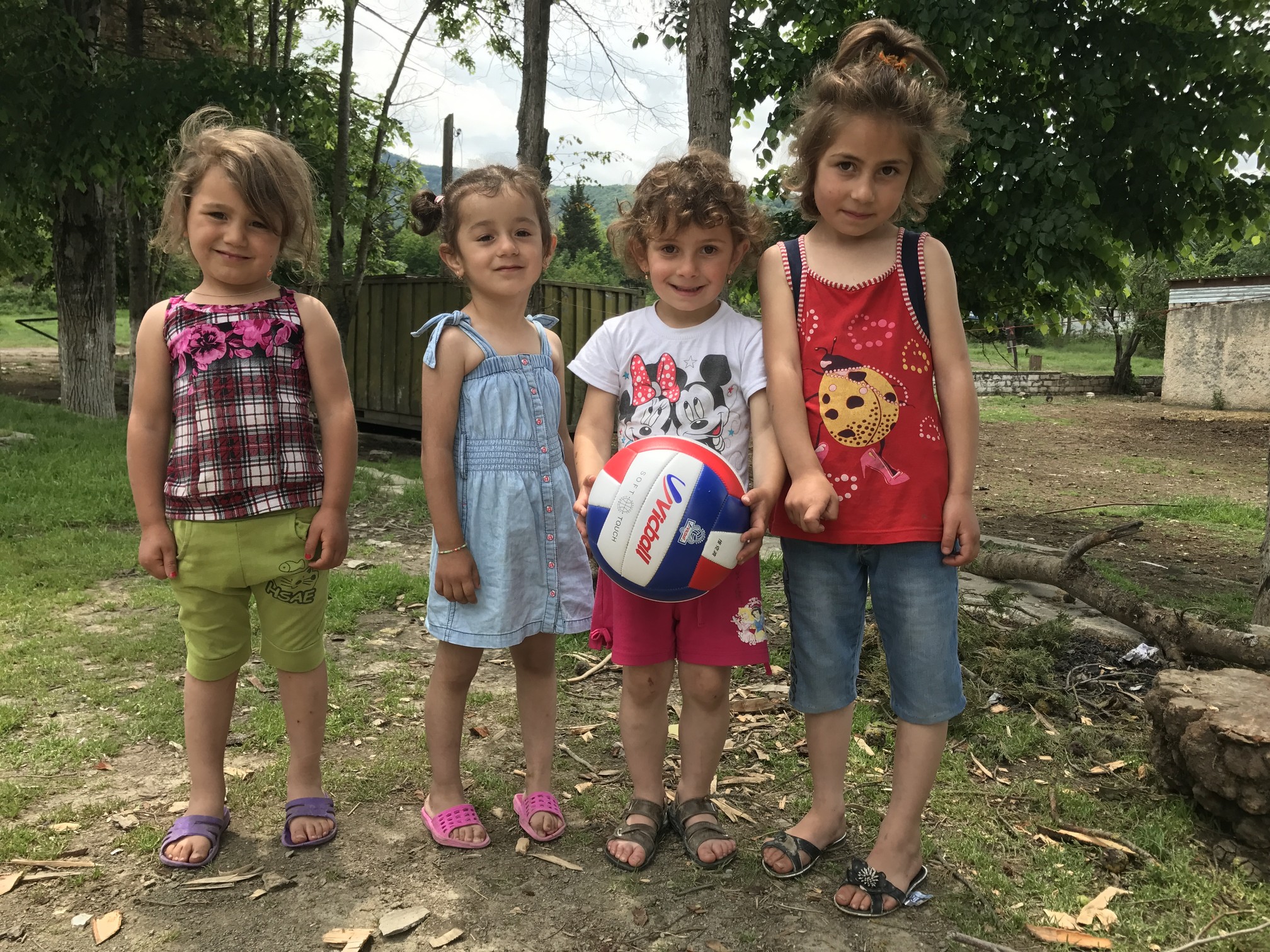
‘I want to kiss your eyes, because you’ve just seen my Talish, you come from my house, which I miss so much. I would give the remaining hours of my life just to be there now… curse those who started the war’, says 80-year-old Zhenya Khachatryan, wiping away her tears.
Khachatryan lost a son in the 1990s, during the first Nagorno-Karabakh War. Her other son remains in Talish, participating in the construction works in the village.
‘The second time, I left my house and ran away. It’s very cruel to see two wars. Now I pray to God that my grandchildren never see battle or die’, she says, and calls her granddaughter, Manya, they have grown up under bombs and giant blasts, she adds.
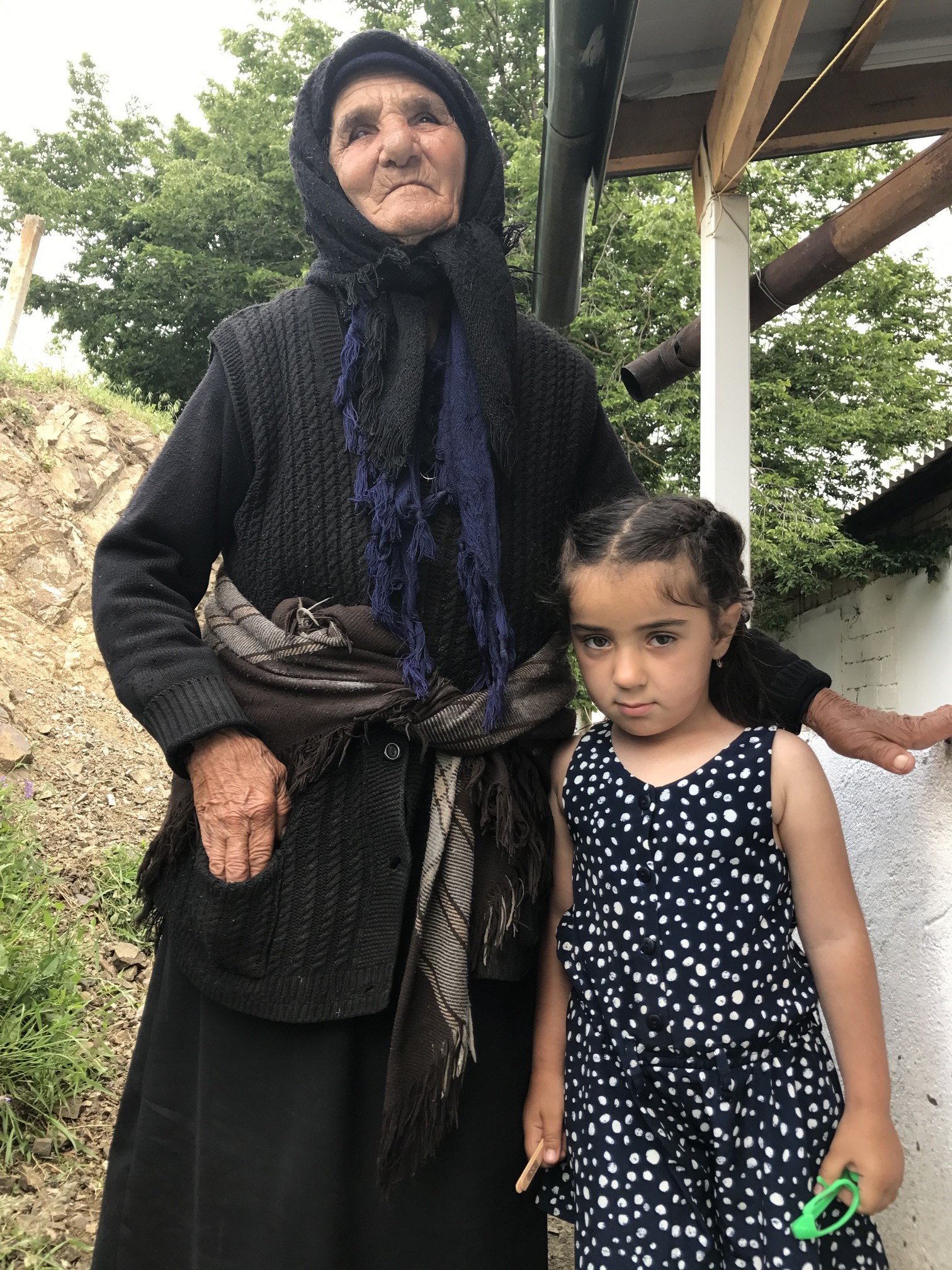
‘The new generation is strong, we have to set an example for the children not to be afraid for a moment, and to return to Talish. You know, it is psychologically difficult for the children, they have just forgotten their fears, you need to see the war with your own eyes, feel it with your own skin, to understand us’, says 62-year-old Zhasmin Mezhlumyan, rushing to cut wood and sort it.
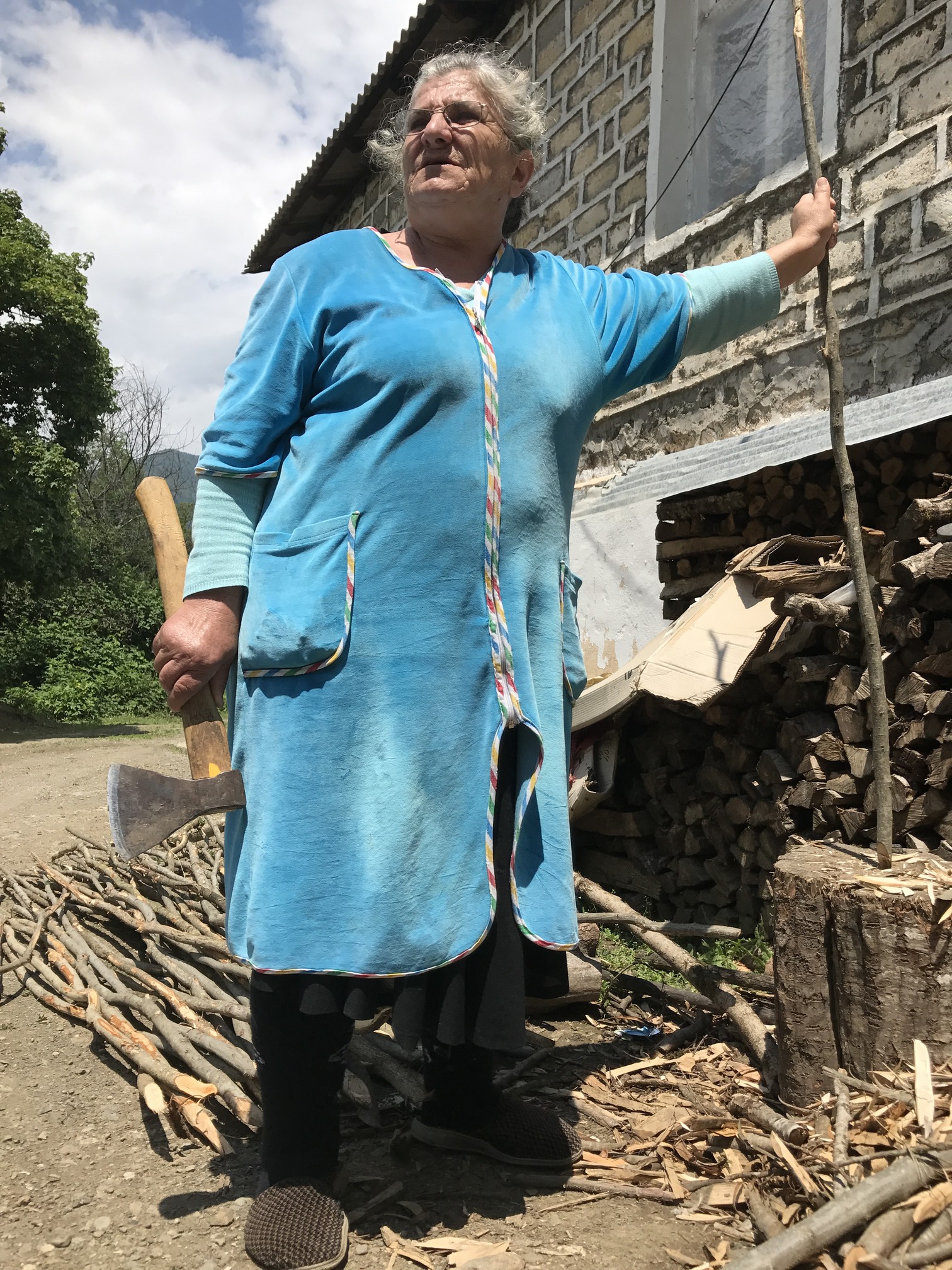
Mezhlumyan is collecting firewood to prepare for next winter. She says it does not matter if she collects the wood in Alishan, if she is able to move to Talish before winter, she will take it with her.
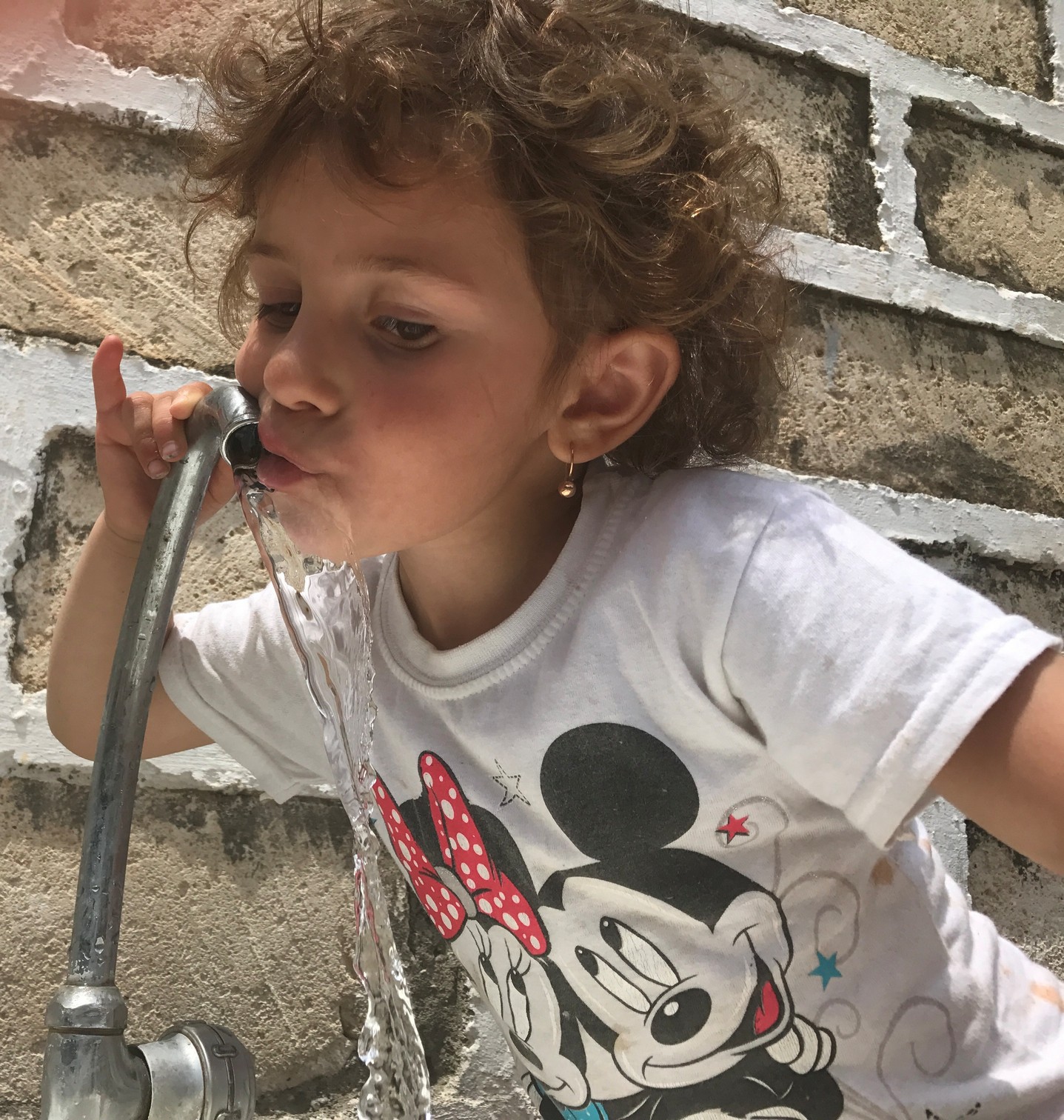
(Armine Avetisyan/OC Media)
Other women who have found shelter in Alashan say the same.
The villagers joke that they’re much better off living outside of Talish, just because of the government subsidies they receive for electricity and water. The government has announced, however, that these privileges will continue once they return.
[Read from Azerbaijan on OC Media: Living on the Armenian-Azerbaijani border: alone and under fire]
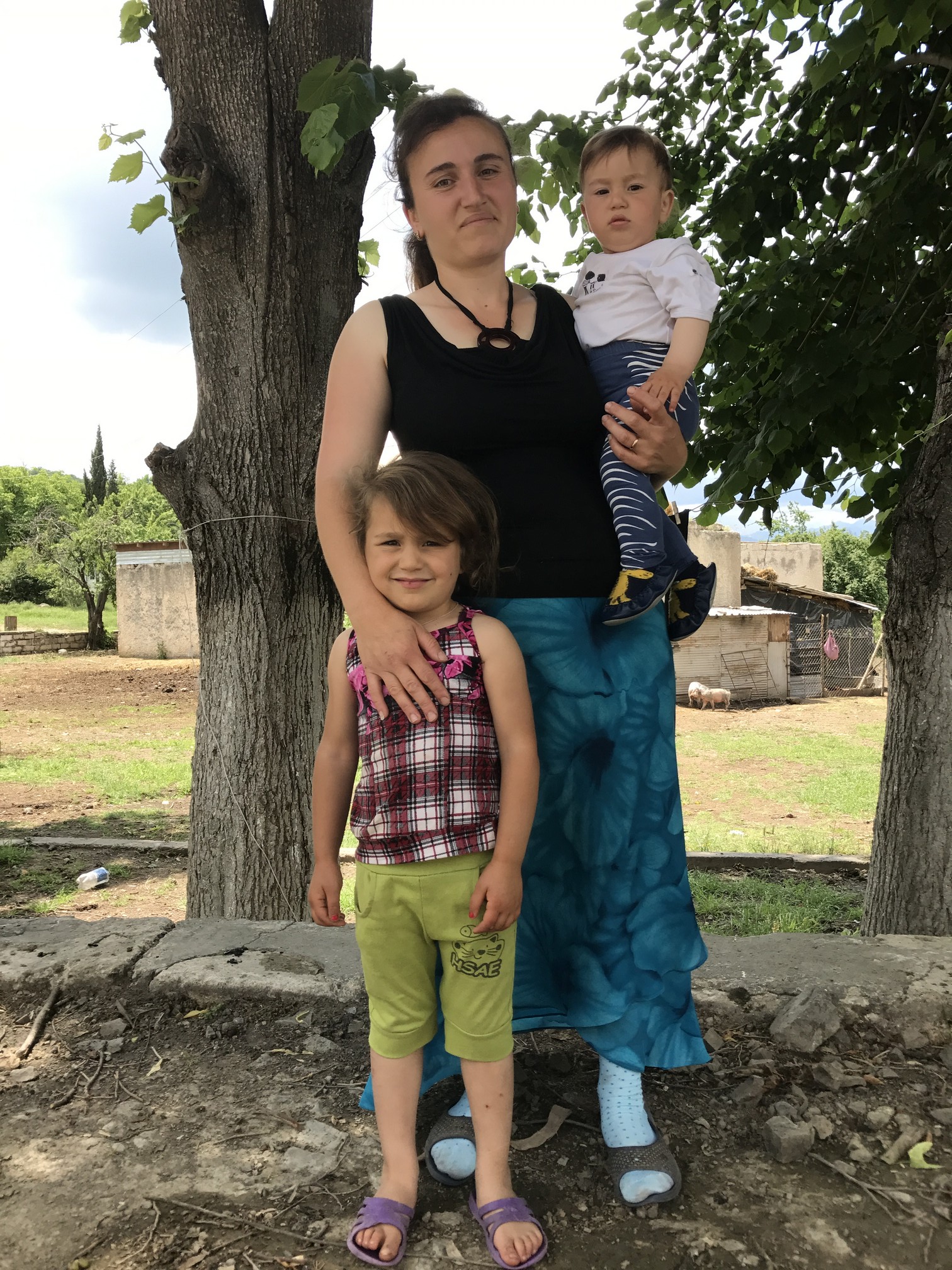
(Armine Avetisyan/OC Media)
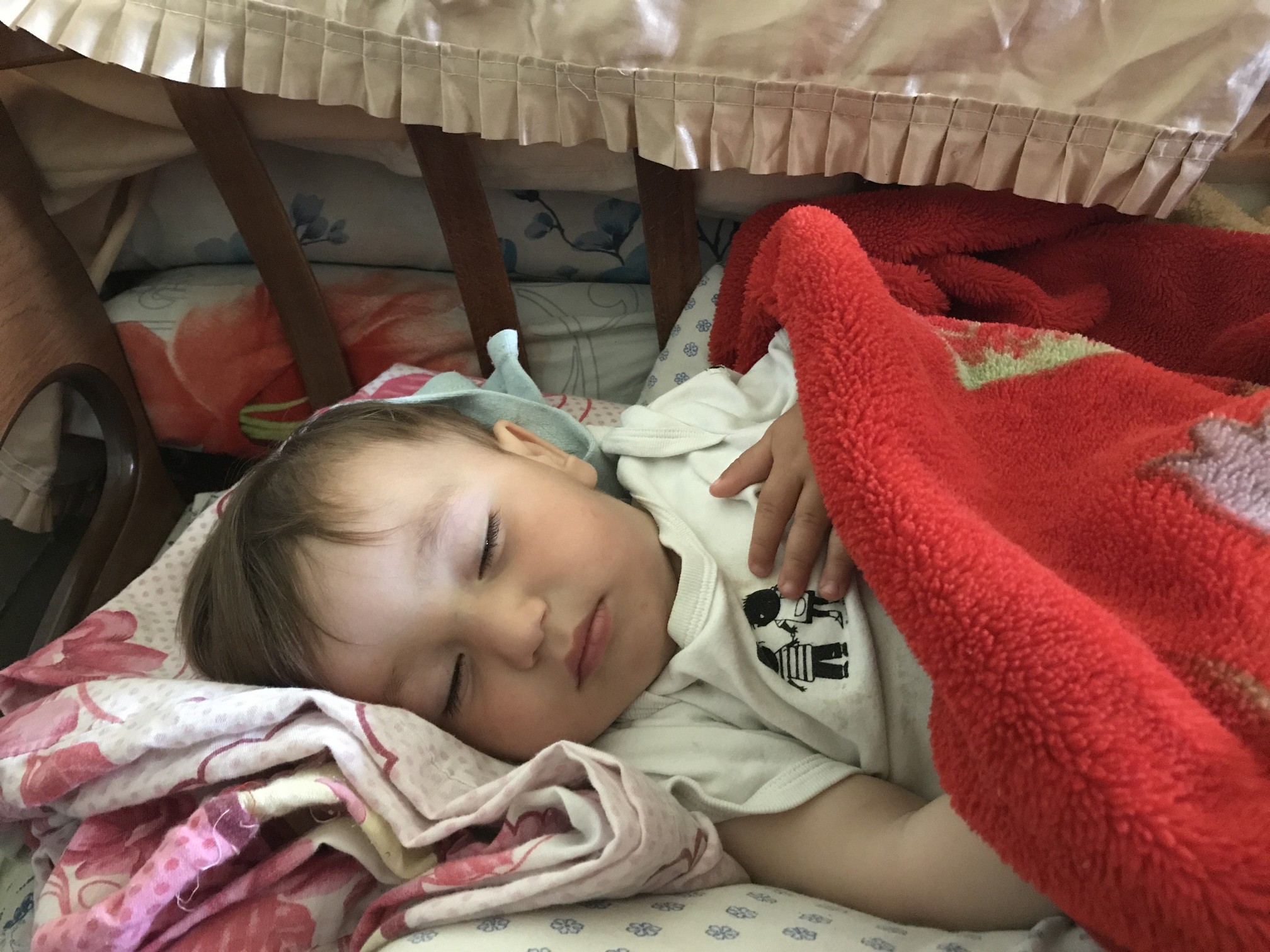
(Armine Avetisyan/OC Media)
All place names and terminology used in this article are the words of the author alone, and may not necessarily reflect the views of OC Media’s editorial board.

